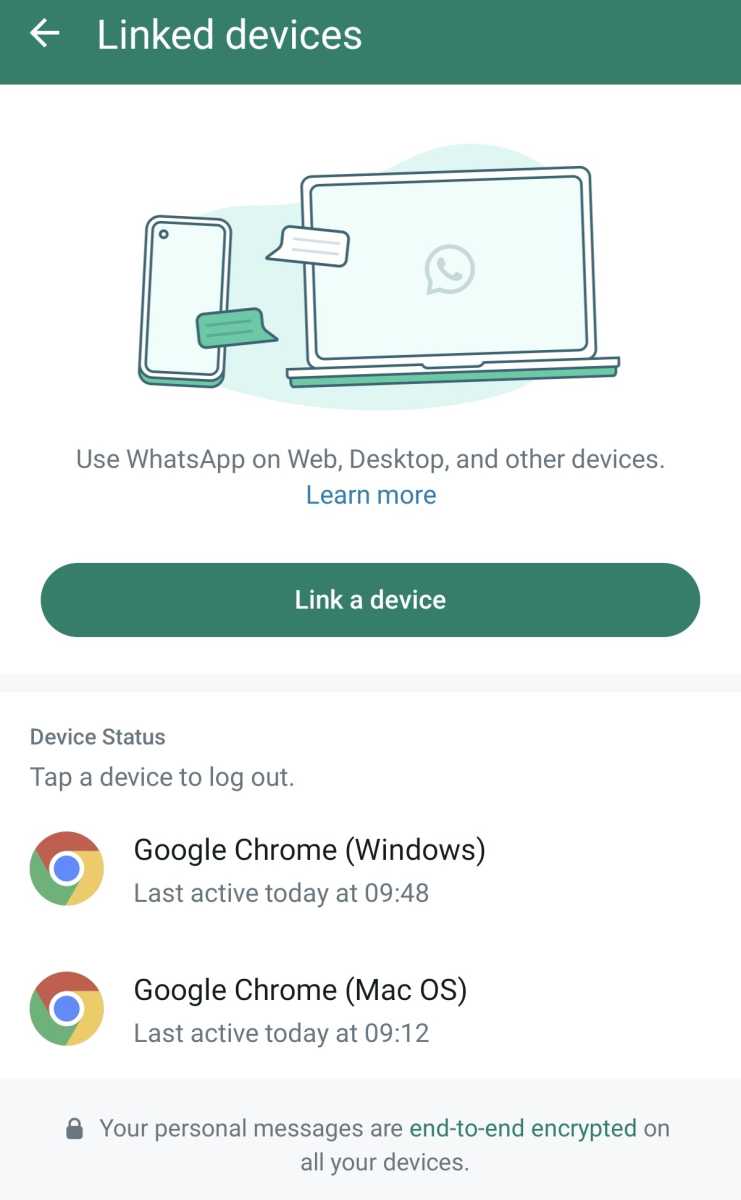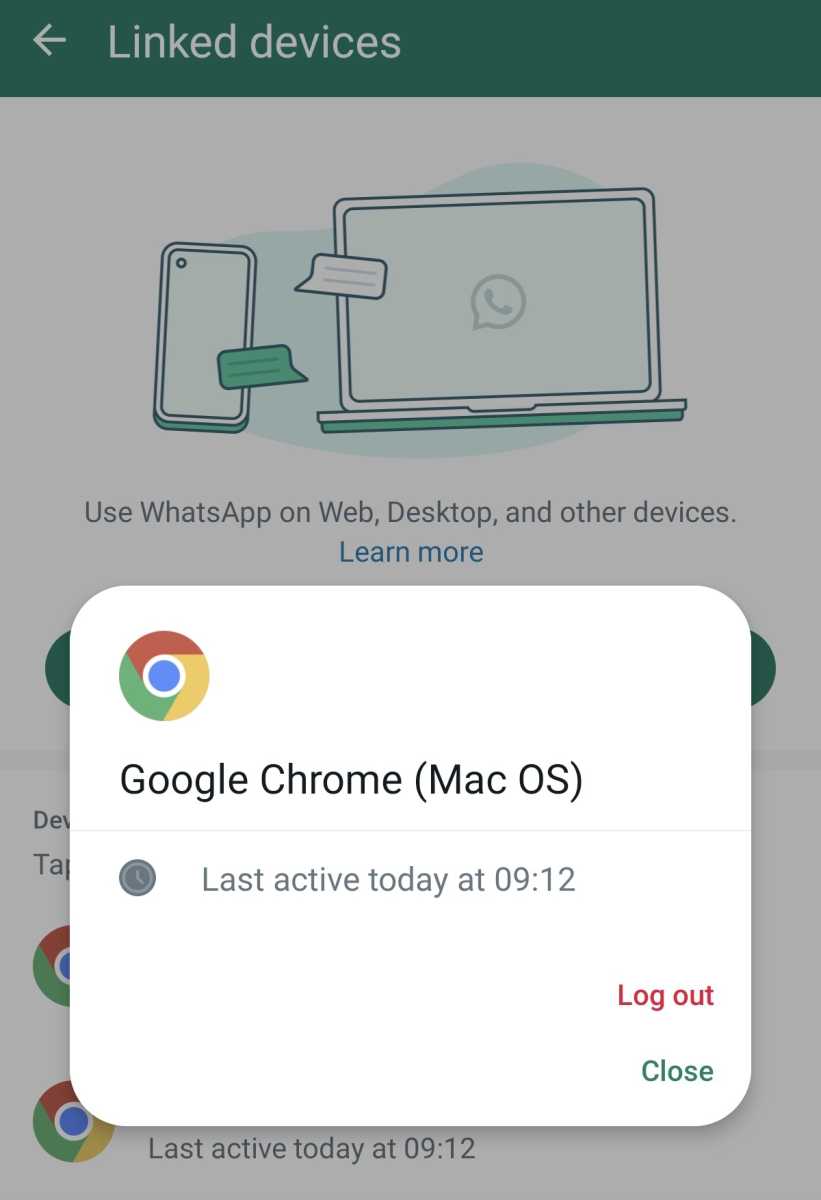WhatsApp is well-known for being one of the most secure messaging services but is it impenetrable? A suspicion you are being spied on could well be correct.
In this article, you can find out how to check whether someone has unauthorised access to your Whatsapp account and what steps you can take to protect your private conversations.
How to tell if someone is secretly reading your WhatsApp messages
Since 2016, WhatsApp has been protecting your messages with end-to-end encryption, meaning that they can only be read by the sender and recipient. But be careful: using Whatsapp in the browser still harbours risks.
Unauthorised access via Whatsapp Web makes it possible to read your messages, even if the smartphone and computer are not on the same network. You should therefore regularly check the devices linked to your account:
- Open the app on your smartphone.
- In the chats overview, tap on the three dots at the top right (Android) or at the bottom right on “Settings” (iOS).
- Select the option “Linked devices” and check whether third-party devices are linked there.
Tap on “Linked devices” in the settings.
Chris Martin / Foundry

Then check whether unknown devices are linked to your account via Whatsapp Web.
Chris Martin / Foundry
What to do if an unknown device is linked?
If there are devices in your list that you don’t remember linking, remove them in case it wasn’t you who added them.
Press and hold your finger on the device you want to remove. In the pop-up window, tap on “Logout” to disconnect the device.

Press and hold your finger on the device to disconnect it.
Chris Martin / Foundry
How to protect yourself from unauthorised readers
For someone to be able to connect to your Whatsapp Web unnoticed, they must have scanned the corresponding QR code in your smartphone app. So be careful who you let use your mobile phone and where you are when you link devices.
Tip: Activate two-factor authentication in the app settings under “Account”. To do this, you must set a six-digit PIN that is required every time you open the app. Do not share this PIN with anyone.
Further precautions to protect your account are:
- Be careful with files and links: Do not open anything that comes from unknown contacts or seems strange to you. Friends can also inadvertently send spam or malicious links, for example for fake competitions.
- Keep apps up to date: Update Whatsapp and other apps regularly to ensure security loopholes are closed.
- Ignore chain letters: Avoid forwarding chain letters, as many are scams.
Related reading:
This article originally appeared on our sister publication PC-WELT and was translated and adapted from German.
Read the full article here












